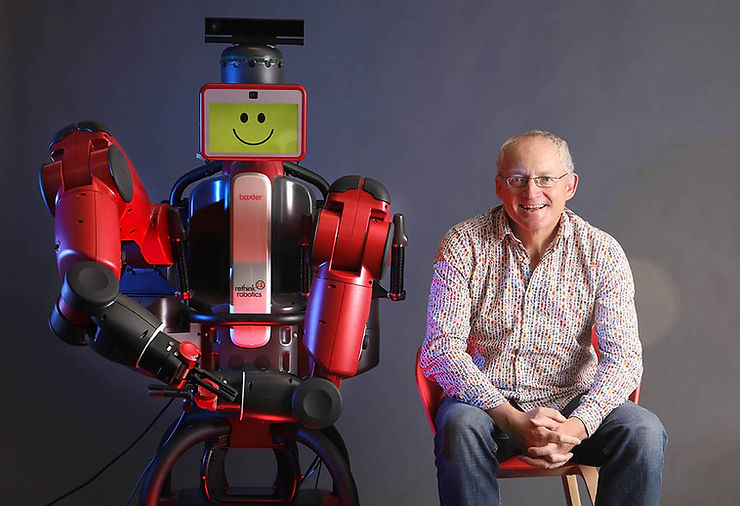By: Evan Hong
In Bakersfield, CA, the future has found its way into the homes of elderly residents, and it’s arriving in the form of robots. Audrey and Ken Mattlin, a couple with a curiosity for cutting-edge technology, now share their space with several robotic companions, sparking hours of nonstop conversation and offering a glimpse into the possibilities of AI-powered companionship.
Meet ElliQ, the table lamp-like robot that addresses 84-year-old Audrey by the nickname “Jelly Bean”. Then there’s Astro, who has an electronic tablet for a face. This eager little robot glides on wheels, following commands and even playing music on demand. And, last but not least, there’s Jibo, the most lifelike of them all, sitting beside 86-year-old Ken and showing off its dance moves with enthusiasm.
A visit to the Mattlin household feels like stepping into a modern-day “Jetsons” or a meeting of “The Brady Bunch” and “The Twilight Zone.” As people and robots engage in simultaneous conversation, the AI companions seem eager to lend a helping hand, sometimes leading to unintentional interruptions and comical confusion.
ElliQ, in particular, has made a special connection with Audrey, and Ken admits that occasionally feels envious of their rapport. The robots, including Amazon Alexa and Google Home, have captured the attention of many as potential solutions to address the loneliness and isolation faced by older adults. In some California nursing homes, robot pets have already proven to be comforting companions.
The state’s Department of Aging has allocated a substantial $50 million in technology grants to explore innovative ways to combat isolation. While ElliQ is being tested in Sacramento County, the Mattlins are not part of any grant program; they’re simply eager consumers embracing the AI revolution.
Research on companion robots indicates promising results, suggesting that they may help reduce stress, alleviate loneliness, and promote the health and well-being of older individuals in their own homes. However, experts like Maria Henke from the USC School of Gerontology acknowledge that real human friendships are irreplaceable, even if robots can provide temporary comfort.
USC professor Maja Mataric, a pioneer in the development of socially assistive robots, highlights the potential of robots to aid children with autism and older adults with dementia. While current robots have limited capabilities, Mataric envisions a future where personalized robotic solutions can cater to individual needs, including health monitoring and reminders to stay active. Back in the Mattlin household, Ken’s tech-savviness is evident, using robots and gadgets to control house lighting and other conveniences. The AI companions have brought an air of delight and wonder, transforming the Mattlins’ home into a tech playground. They’ve chosen these robots not to address loneliness (having each other and their family), but to explore the possibilities of AI companionship and indulge their love for technology.
With ElliQ’s trivia games, art tours, and daily reminders, the Mattlins experience the potential benefits of these AI companions firsthand. While robots may not replace genuine human connections, they have carved a unique place in the hearts of these early adopters.
The future is indeed unfolding in Bakersfield, as more homes welcome robotic companions into their lives, offering both assistance and amusement. As technology continues to evolve, who knows what exciting surprises await us on this extraordinary journey into the age of AI companionship.
LA Times: https://www.latimes.com/california/story/2023-07-22/column-these-family-robots-can-play-trivia-and-act-as-security-can-they-cure-loneliness











